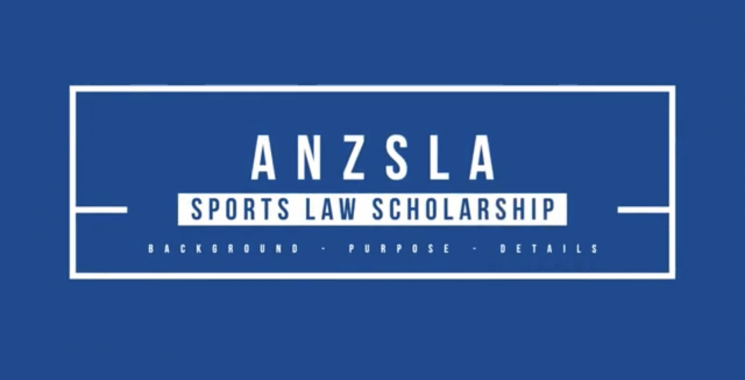The Australian and New Zealand Sports Law Journal 2014
All for one and one for all … for how much longer? How WADA could tackle doping in professional team sport
Victoria Wark
For almost three years, allegations that a large number of players from a high profile football club committed anti-doping rule violations under the World Anti-Doping Agency anti-doping code have cast a long and lingering shadow over Australian anti-doping efforts and professional team sport in this country. The various investigations by the national anti-doping body, the league and club together with the tribunal hearings and related legal proceedings have been the subject of extensive media coverage. They have also prompted legislative reform and been the subject of widespread political and public debate. At the time of writing, the final chapter in this protracted saga is about to get underway – the hearing of the WADA’s appeal to the Court of Arbitration for Sport. Irrespective of the final CAS decision, one issue that has already emerged from these events is whether the international anti-doping rules and regulations that make up the Code are appropriately adapted to Australian professional team sports. This article explores some of the difficulties with the Code in the context of professional team sports and suggests some changes that may overcome these deficiencies while remaining consistent with the Code’s original aims.
The integrity of sport and the privilege against self-incrimination – Is ASADA playing by the rules?
Anthony Crocker
This article commences with an acknowledgement of the importance of integrity in sport. It then articulates the common law privilege against self-incrimination and identifies the breadth of its application, before considering what role it should and does have in current sport integrity investigations in Australia, particularly anti-doping matters. It concludes by demonstrating that the Australian Sports Anti-Doping Authority (‘ASADA’) is presently encouraging athletes to give to it powers that parliament has expressly determined should not be available to it. This in turn raises a number of policy and enforceability issues.
Match-fixing in football: The epistemology of the Court of Arbitration for Sport Jurisprudence
Nathan Deakes
The article briefly considers the history of match-fixing in football before examining the salient match-fixing cases so far expounded by the Court of Arbitration for Sport, analysing their backgrounds, procedural issues, sanctions, and the standard of proof. The article investigates the regulatory framework of FIFA and UEFA, as well as several legislative instruments currently in place in different jurisdictions worldwide. It formulates recommendations and solutions towards the optimal anti-corruption system to eliminate this dishonest malfeasance.
Cheating to lose: The rampant expansion of match-fixing and developing responses to defend fair competition in New Zealand sport
Alison Chamberlain
The recent proliferation of match-fixing scandals in the media emphasises that match-fixing presents a major and growing challenge for sport governance bodies and national governments across the globe, including in New Zealand. This article examines match-fixing methods using football and cricket fixing-scandals as examples, the relationship between betting and match-fixing, and the threat to New Zealand sport. It also analyses the recently released New Zealand Policy on Sports Match-Fixing and Related Corruption (‘NZPSM’) and the Crimes (Match-Fixing) Amendment Act 2014 (NZ) using a comparison with Australian law.
Truth or truce? The legality of restriction on Olympic athletes’ freedom of speech
Anita Killeen and An Hertogen
This article assesses the legality of restricting Olympic athletes’ fundamental right to freedom of speech against New Zealand domestic human rights standards as well as fundamental values of Olympism. It argues that the New Zealand Bill of Rights Act 1990 applies to the New Zealand Olympic Committee under section 3(b) of the Act. The restrictions on freedom of speech in the athletes’ agreements therefore need to comply with section 14. The restrictions are however incompatible with this provision, and are not saved by section 5 as they are not reasonable limits prescribed by law that are demonstrably justified in a free and democratic society.
Procedural fairness, disabled athletes and the Court of Arbitration for Sport
Hannah Donaldson
This article examines the cases of three disabled athletes, NWBA v IPC, Gatlin v USADA and Pistorius v IAAF. It considers how CAS has examined the rules of the respective governing bodies and highlight where CAS has been critical of the ambiguous rules and procedures in place. It will show that while CAS has been critical over a number of years, governing bodies continue to create ambiguous rules to the potential detriment of disabled athletes.
Don’t argue with the ref! – Legal liability for incorrect decisions of sports officials
John O’Brien
This article examines the potential remedies available for incorrect decisions by sports officials. In particular, it focuses on bringing an action against an official in negligence for pure economic loss. It determines that such an action would have a low chance of success, as a duty of care would be difficult to establish. Even if that could be overcome, an aggrieved player or team would still face further hurdles at the stages of breach, causation and defences. The article concludes by proposing some options to further reduce the small risk of liability to officials.


